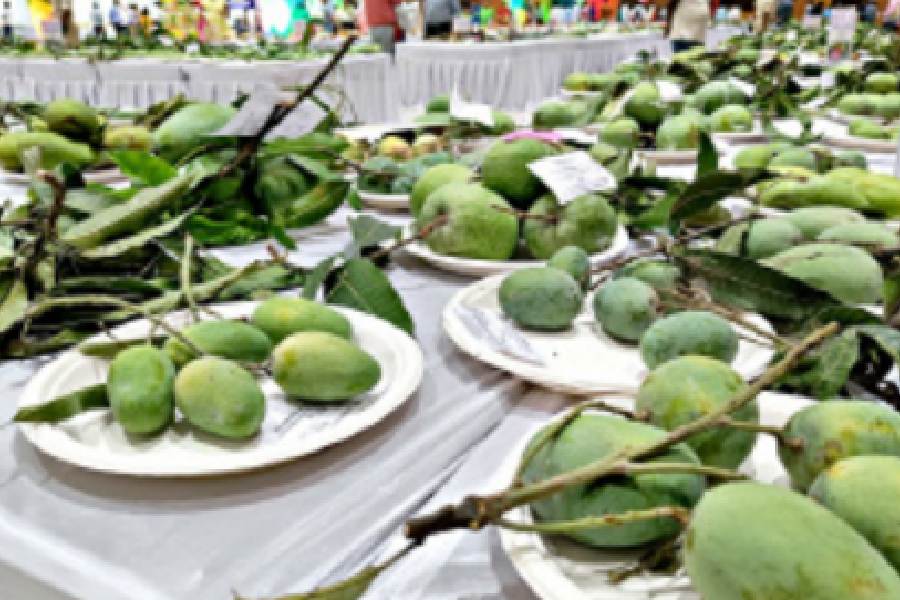A two-day mango festival, offering a delightful array of 120 varieties, kicked off in Patna on Saturday.
While the Bihar government asserted its intent to promote their conservation, farming, storage, and marketing, the growers narrated their woes on the occasion.
“Our state has an astonishingly large number of mango varieties. Altogether 120 of them are present at the festival here, yet we know the names of hardly 10 of them, which are easily available in the market. There is a need to protect and promote the other varieties so that they are not lost,” Sanjay Kumar Agarwal, state agriculture department secretary said while inaugurating the festival.
Agarwal said there was a need to work on improving the storage techniques and facilities of mangoes and the department has asked the scientists to work on it.
“The entire production of mangoes happens in Bihar within a span of just two months. The market is flooded with fruit and the prices are low during the period. If we are able to store it and release it in the market in a staggered manner after the production season is over, it will be beneficial for the cultivators. We have asked our scientists to work on it,” Agarwal said.
Agarwal also pointed out that the fruit growers in the state were still in the production mode, but needed to shift to marketing mode, including better packaging and transportation.
The 120 varieties exhibited at the festival came from different nooks and corners of the state. Jardalu, Jarda, Krishnabhog, Malda, Langda, Amrapali, Arunima Mallika, Gulabkhas, Chausa, Bathua, Churamba, Bambaiyya, Fazli, Dashahri, Bharat Bhog, Husn-e-Ara, Lal, Sukul, Sipia, Chausa, Mahmood Bahar and several others were among them.
Bihar has mango trees and orchards spread over 1.6 lakh hectares, and produces around 15.5 lakh tonnes of mangoes annually.
Mango grower Ravindra Nath Jha of Madhubani, who got first prizes in two of the eight categories of mangoes— Mahmud Bahar and Arunima varieties— said he cultivated 30 types of mangoes, but what made him sad that the state government’s help in this field was negligible.
“We just wish the government makes available better storage, transportation, and marketing facilities so that fruit growers can make their products available across the country and the globe, and get better prices. The field is still dominated by middlemen. Moreover, if the government tries to help with regards to mangoes, it asks for projects on such a large scale that 99 per cent of farmers are automatically left out,” Jha said.
Another mango grower Alok Kumar from Sitamarhi district, who specialises in cultivating organic mangoes without the use of pesticides, synthetic fertilisers, and ripening agents, pointed out that the use of technology in the field of mangoes was almost nil in the state.










